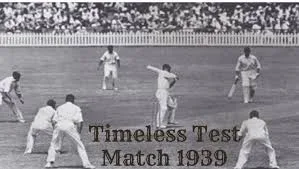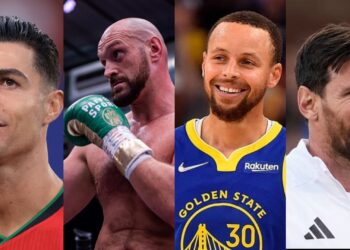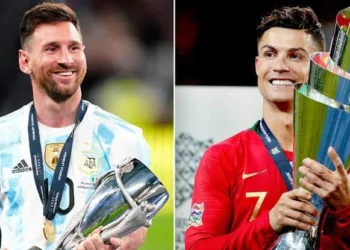The cricket world witnessed another significant coaching transition as Kolkata Knight Riders (KKR) announced their mutual separation from head coach Chandrakant Pandit after three eventful seasons. This strategic move comes in the aftermath of a disappointing IPL 2025 campaign where the two-time champions finished eighth on the points table, marking the end of an era that peaked with their remarkable title triumph in 2024.
Table of Contents
The Rise and Fall: Chandrakant Pandit’s KKR Tenure
KKR’s decision to part ways with Chandrakant Pandit represents one of the most intriguing coaching sagas in recent IPL history. When the veteran coach joined the purple and gold brigade in August 2022, replacing the charismatic Brendon McCullum, expectations were sky-high. Pandit brought with him an impressive domestic cricket pedigree, having transformed Madhya Pradesh into a formidable force in Indian cricket.

The journey began with turbulence in 2023, where KKR struggled to find their rhythm under Pandit’s disciplinarian approach, finishing seventh in the league standings. Critics questioned whether his “military-style” coaching methods would translate effectively in the franchise cricket environment, where international stars often require a different management approach.
However, 2024 proved to be the redemption year that silenced all doubters. Under Chandrakant Pandit’s tactical acumen, KKR orchestrated one of the most complete campaigns in IPL history, culminating in their third title after a decade-long drought. The championship victory validated Pandit’s methods and established him as a coach capable of delivering results when it mattered most.
The Philosophy Behind the Success
Chandrakant Pandit’s coaching philosophy centered around discipline, fitness, and mental toughness – principles that served him well during his domestic cricket success with Madhya Pradesh. His approach emphasized building character alongside cricketing skills, creating a team culture that prioritized collective success over individual brilliance.
The 2024 title-winning campaign showcased Pandit’s ability to extract maximum potential from his squad. KKR displayed remarkable consistency throughout the tournament, with players like Sunil Narine, Andre Russell, and Shreyas Iyer flourishing under his guidance. The team’s balanced approach to batting, bowling, and fielding reflected Pandit’s comprehensive coaching methodology.
The Challenges and Controversies
Despite the success, Chandrakant Pandit’s tenure wasn’t without its challenges. Reports emerged about certain overseas players struggling to adapt to his stringent methods. David Wiese, the Namibian all-rounder who was part of the 2023 squad, openly criticized Pandit’s approach, describing it as overly restrictive for experienced international cricketers.

“He is known in India as a very military type of coach. Sometimes in franchise cricket, when you have overseas guys who have played all over the world, they don’t need anyone coming and telling them how they need to behave,” Wiese had stated, highlighting the cultural disconnect that occasionally surfaced.
This friction necessitated the introduction of Gautam Gambhir as a mentor in 2023, creating a buffer between Pandit’s disciplinarian approach and the diverse squad dynamics. The arrangement worked wonders in 2024 but became more complex when Gambhir departed for the Indian national team coaching role.
The 2025 Downfall
The IPL 2025 season exposed the vulnerabilities in KKR’s setup post-Gambhir. Despite retaining most of their championship-winning squad, the team struggled for consistency and finished a disappointing eighth. Several factors contributed to this decline:
Squad Dynamics: The absence of Gambhir’s calming influence created a leadership vacuum that affected team morale and strategic decision-making.
Player Performance: Key players failed to replicate their 2024 form, with both batting and bowling units underperforming at crucial junctures.
Tactical Adjustments: Chandrakant Pandit struggled to adapt his strategies to counter evolved opposition tactics, leading to predictable game plans.
External Pressures: The weight of defending champions and internal franchise expectations may have contributed to the team’s mental fragility.
The Mutual Decision
KKR’s official statement emphasized the mutual nature of the separation, with Chandrakant Pandit choosing to “explore new opportunities.” This diplomatic language suggests a professional parting rather than an acrimonious dismissal, maintaining respect for Pandit’s contributions to the franchise.
The franchise acknowledged his “invaluable contributions,” particularly highlighting the 2024 championship and his role in building a “strong, resilient squad.” This recognition indicates that despite the recent disappointment, KKR values Pandit’s overall impact on the organization.
Statistical Analysis of Pandit’s KKR Journey
| Season | Position | Wins | Losses | Win % | Key Achievement |
|---|---|---|---|---|---|
| 2023 | 7th | 7 | 7 | 50% | Squad Building Phase |
| 2024 | 1st | 10 | 4 | 71% | IPL Champions |
| 2025 | 8th | 6 | 8 | 43% | Disappointing Campaign |
Looking Forward: The Search for New Leadership
With Chandrakant Pandit’s departure, KKR faces the challenge of finding suitable leadership for their next chapter. The franchise must balance their need for tactical innovation with maintaining the disciplined culture that Pandit established.

Abhishek Nayar emerges as a potential candidate, given his previous association with the franchise and recent coaching experience. However, his terminated contract with the Indian national team following poor Test performances might complicate his candidacy.
The new coach will inherit a squad with proven championship credentials but one that requires psychological rehabilitation after the 2025 disappointment. Managing this transition while preparing for future auctions and player retention decisions will be crucial.
KKR’s Coaching History Comparison
| Coach | Tenure | Seasons | Titles | Win % | Notable Achievement |
|---|---|---|---|---|---|
| John Buchanan | 2009-2010 | 2 | 0 | 31% | IPL Inception |
| Brendon McCullum | 2021-2022 | 2 | 0 | 57% | Playoffs Qualification |
| Chandrakant Pandit | 2023-2025 | 3 | 1 | 55% | 2024 IPL Champions |
Impact on Domestic Cricket
Chandrakant Pandit is expected to continue his role as director of cricket at Madhya Pradesh, returning to the domestic circuit where he built his reputation. His IPL experience will undoubtedly enhance his value in the domestic ecosystem, potentially inspiring other state associations to invest in experienced coaches.
Read More: Nottingham Forest Deploy Legal Arsenal as Crystal Palace Challenge UEFA’s Europa League Reshuffle
FAQs
Why did KKR decide to part ways with Chandrakant Pandit?
KKR parted ways with Chandrakant Pandit following a disappointing IPL 2025 campaign where they finished eighth. Despite winning the title in 2024, the franchise decided to make changes after the recent poor performance and apparent disconnect between coaching methods and squad dynamics.
What were Chandrakant Pandit’s major achievements with KKR?
Chandrakant Pandit’s most significant achievement was leading KKR to their third IPL title in 2024 after a ten-year gap. He also helped build a disciplined squad culture and maintained a respectable overall win percentage during his tenure.
Will Chandrakant Pandit continue coaching in cricket?
Yes, Chandrakant Pandit is expected to continue as director of cricket at Madhya Pradesh, returning to domestic cricket where he built his coaching reputation and achieved significant success.
Who might replace Chandrakant Pandit as KKR’s head coach?
While KKR hasn’t announced a replacement, Abhishek Nayar, who rejoined the franchise mid-season in 2025, could be a potential candidate. However, the franchise will likely conduct a thorough search for their next head coach.
How did Chandrakant Pandit’s coaching style affect international players?
Chandrakant Pandit’s military-style approach sometimes created friction with overseas players who found his methods overly restrictive. This led to KKR bringing in Gautam Gambhir as a mentor to bridge the gap between coaching philosophy and player management.








